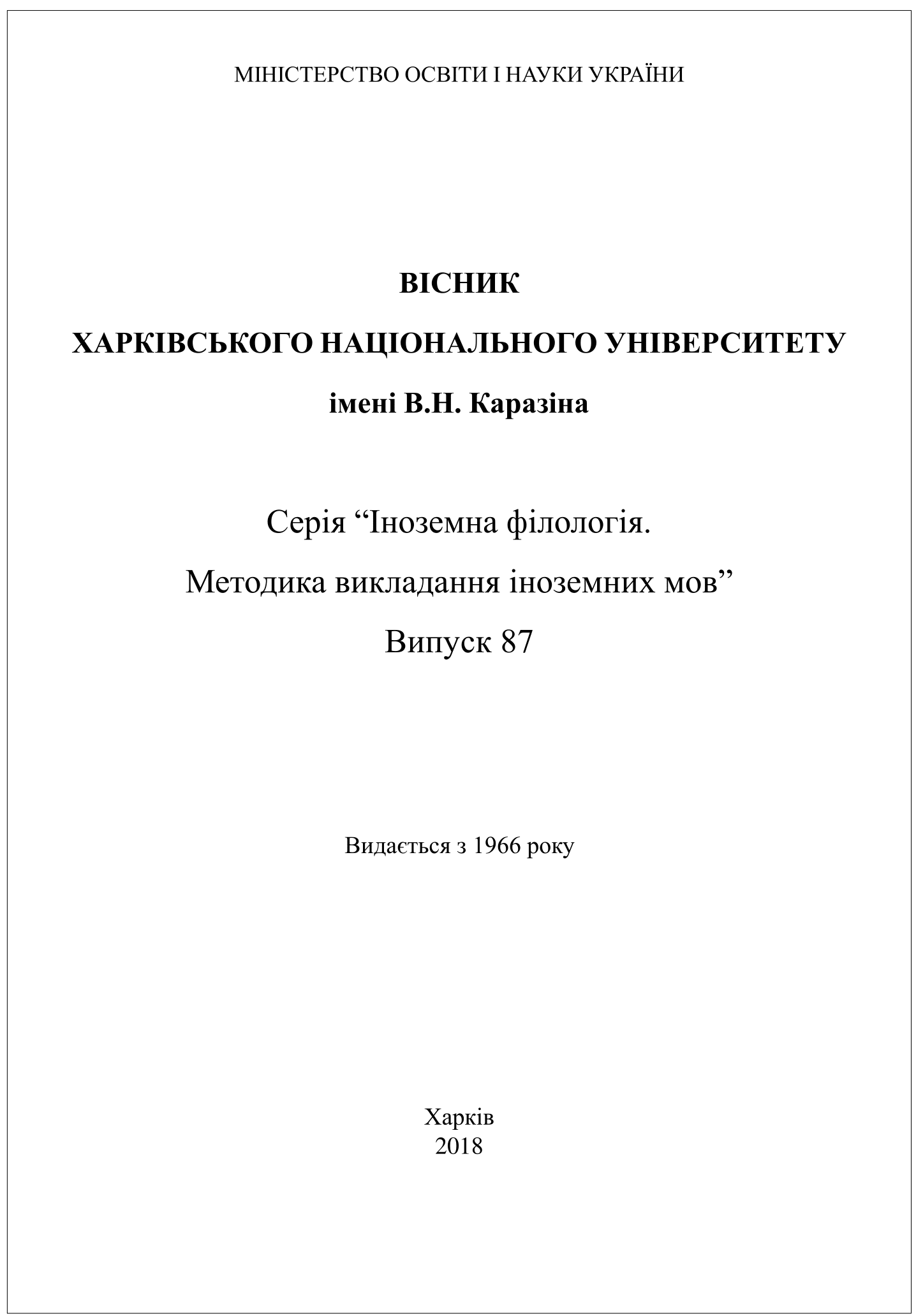Metaphor as a Basis of Aesthetic Value of a Fictional Text (On the Material of the English-Language Short Story)
Abstract
The article focuses on the specific features of metaphor functioning in a fictional text, particularly in the English-language short story. The paper comprises the review of the concepts which reveal the metaphor nature, its peculiarities and main functions as well as traditional classifications which are based on different criteria for certain metaphor types division. The pragmastylistic analysis of the ways of metaphor realization has been conducted on the material of the English-language short story. The role of metaphor in a fictional text in general and in the English-language short story in particular has been defined. It has also been proved that the English-language short story contains such types of metaphor as conventional and fictional metaphor, simple and extended metaphor, hyperbole and litotes, personification, anthropomorphism, zoomorphism and objectification. Metaphor is characterized by originality and close connection with context; it reflects the author’s image and personal style, specific national, cultural and social features. With the help of metaphors authors underline uniqueness of certain persons, objects or phenomena by comparing them with other persons, objects or phenomena on the basis of some common feature. In the course of the research it has been found that aesthetic value of a fictional text increases, figurativeness and expressiveness of speech intensifies, readers’ associative thinking develops and pragmatic impact is exerted on recipients due to metaphor functioning.
Downloads
References
Arnol'd, I.V. (2002). Stilistika. Sovremennyj anglijskij jazyk [Stylistics. Modern English]. Moscow: Flinta-Nauka Publ.
Arutjunova, N.D. (1999). Jazyk i mir cheloveka [Language and the world of human]. Moscow: Jazyki russkoj kul'tury Publ.
Boeva, E.D., and Kul'kina E.A. (2014). Sposoby perevoda avtorskoj metafory v hudozhestvennom tekste [Methods of author’s metaphor translation in a fictional text ]. Filologicheskie nauki. Voprosy teorii i praktiki. – Philology. Theory and practice, 4(34), 41–44 (in Russian).
Golovkina, S.H. (2006). Lingvisticheskij analiz teksta [Linguistic text analysis]. Vologda: VIRO Publ.
Kobozeva, I.M. (2001). Semanticheskie problemy analiza politicheskoj metafory [Semantic issues of the political metaphor analysis]. Vestnik MGU. – Moscow State University Messenger, 9(6), 132–149 (in Russian).
Korin', S.N. (2006). Kompleksnaja metafora v hudozhestvennom tekste [Complex metaphor in a fictional text]. Vіsnyk Kharkiv. nats. un-tu іm. V.N. Karazіna. – V.N. Karazin Kharkiv National Univ. Messenger, 726, 141–144 (in Russian).
Mac'ko, L.I., Sydorenko, O.M., and Mac'ko, O.M. (2003). Stylistyka ukrai'ns'koi' movy [Stylistics of the Ukrainian language]. Kyiv: Vyshha shkola Publ.
Nikitin, M.B. (2001). Metaforicheskij potencial slova i ego realizacija [Metaphoric potential of a word and its realization]. In: V.M. Arinshtejn, N.A. Abieva, L.B. Kopchuk (eds.). Problema teorii evropejskih jazykov [Theory of European languages]. St. Petersburg: Trigon Publ., pp. 36–50.
Sukhova, A.V. (2017). Anhlomovna novela (XIX–XX st.): linhvostylistychnyi ta prahmatychnyi aspekty. Dis. kand. filol. nauk [English-language short story (XIX–XX cent.): linguostylistic and pragmatic aspects. Cand. philol. sci. diss.]. Zaporizhzhia. 264 p. (in Ukrainian)
Shavaeva, F.Ja. (2016). Jazykovaja i hudozhestvennaja metafory. Specifika funkcionirovanija metafory v hudozhestvennom tekste [Language and fictional metaphors. Specific features of metaphor functioning in a fictional text]. Filologicheskie nauki. Voprosy teorii i praktiki. – Philology. Theory and practice, 5(59), 164–167 (in Russian).
Timofeeva, O.V. (2011). Metafora v hudozhestvennoj reprezentacii mira (na materiale proizvedenij anglijskih i amerikanskih pisatelej). Avtoref. diss. kand. filol. nauk [Metaphor in fictional representation of the world (on the material of English and American writers’ works). Cand. philol. sci. diss. synopsis]. Moscow. 20 p. (in Russian).




